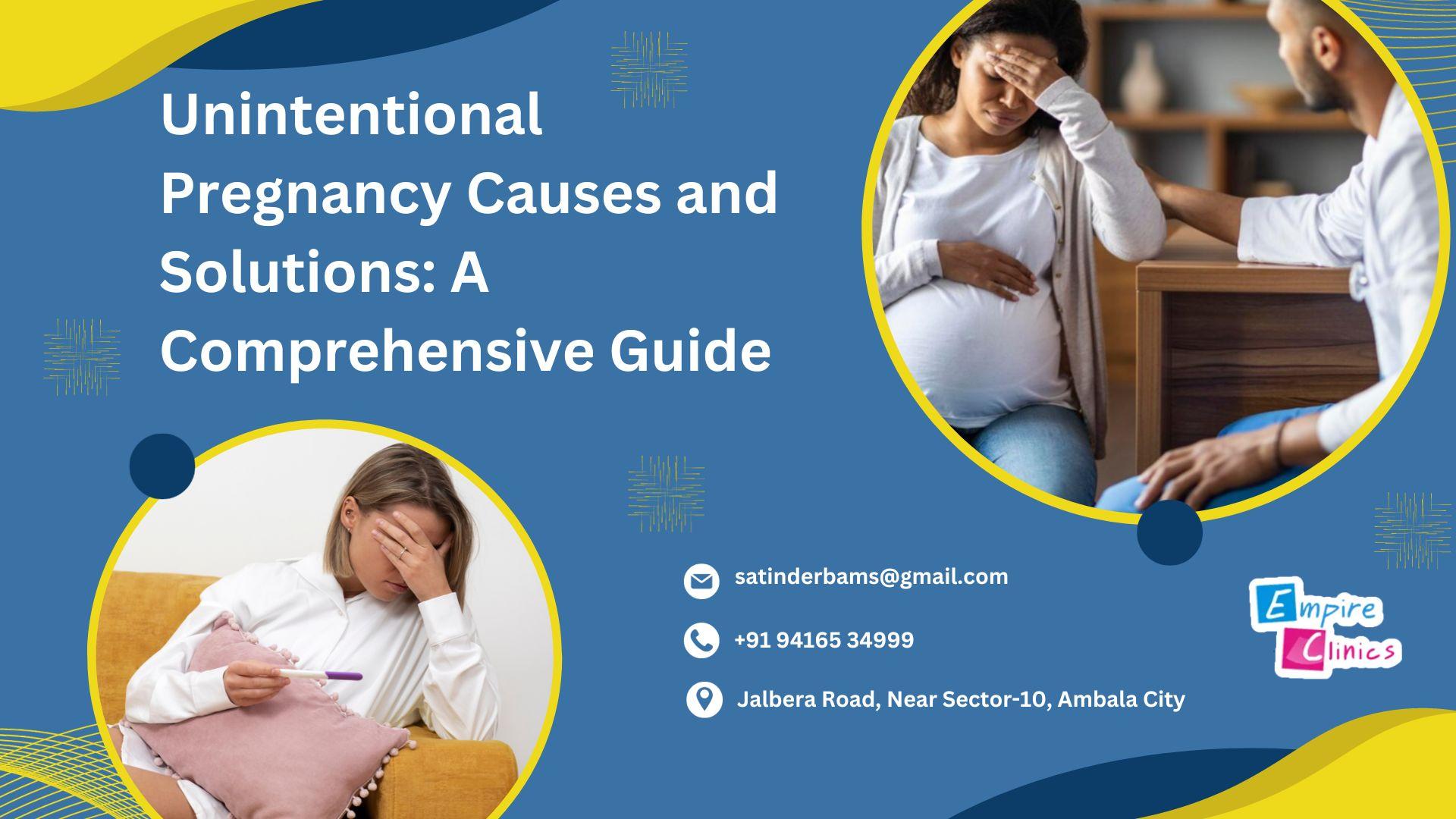Unintentional pregnancy can bring unexpected challenges and changes to a person's life. It's important to understand the reasons behind unintentional pregnancies and explore effective solutions to help individuals make informed choices. In this article, we will delve into the causes of unintentional pregnancy and provide guidance on how to prevent it.
Unintentional Pregnancy:
Unintentional pregnancy, often referred to as an unplanned or unexpected pregnancy, occurs when a person becomes pregnant without intending to do so. This can happen for various reasons, which we will discuss in detail.
Common Causes of Unintentional Pregnancy:
Lack of Contraception: Failing to use contraception consistently or correctly is a major cause of unintentional pregnancy. This can happen due to misinformation, limited access to contraceptives, or simply forgetting to use them.
Contraceptive Failure: Even when contraceptives are used correctly, there is still a small chance of failure. This can include condom breakage, missed birth control pills, or an expired contraceptive device.
Inadequate Sex Education: A lack of comprehensive sex education can lead to poor understanding of contraception methods and their effectiveness. This can result in unplanned pregnancies.
Miscommunication: Partners may not effectively communicate about family planning, leading to misunderstandings or differing expectations regarding contraception.
Alcohol or Drug Use: Substance abuse can impair judgment and decision-making, increasing the likelihood of engaging in unprotected sexual activity.
Solutions to Prevent Unintentional Pregnancy:
Comprehensive Sex Education: Access to accurate and age-appropriate sex education is crucial. It should cover topics like contraception, consent, and healthy relationships.
Use of Effective Contraceptives: It's important to choose a reliable contraceptive method and use it consistently and correctly. Consult with a healthcare provider to find the best option for you.
Open Communication: Discuss family planning with your partner to ensure you are on the same page regarding contraception and future goals.
Regular Health Check-ups: Regularly visit a healthcare provider for check-ups and to discuss your reproductive health and contraception options.
Emergency Contraception: If a contraceptive failure occurs or you engage in unprotected sex, emergency contraception is an option to consider. It's most effective when taken within 72 hours after unprotected intercourse.
Conclusion:
Unintentional pregnancy can bring unexpected challenges and disrupt life plans. By understanding the causes and adopting effective solutions, individuals can take control of their reproductive health and make informed decisions. Remember, seeking guidance from healthcare professionals and educators is essential in preventing unintentional pregnancy.







